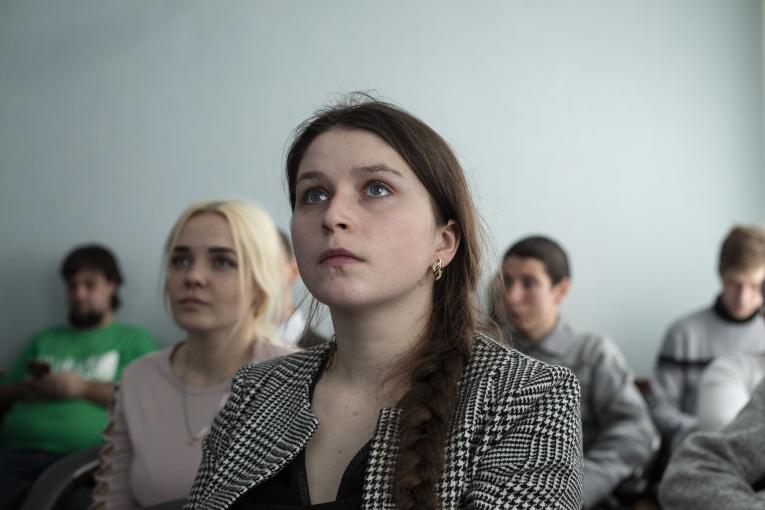Valeria, Youth Leader, Ukraine
When Valeria is not studying for a degree in finance and banking, she is cleaning up her local beaches and building eco-friendly greenhouses.
So, when an opportunity arose to join a new Youth Council in eastern Ukraine, the 18-year-old did not think twice.
“I am a part of a bigger world, part of a mechanism,” she explains. “And if I don’t work, the mechanism won’t work either.”
Valeria is one of 14 leaders from local organizations in Luhansk, Ukraine, who have come together to form a new type of youth council, launched for the first time in March with the support from UNICEF and the European Union.
The council will have a say in decisions that directly impact young people in the region, such as allocating budget or development strategy.

For this year’s International Day of the Girl (October 11), UNICEF is working to amplify the voices of girls all over the world, stand up for their rights and celebrate their achievements. As entrepreneurs, innovators and initiators of global movements, girls are leading and fostering a world that is relevant for them and future generations.
Valeria’s determination to improve the lives of young people stems from her own experiences of ‘starting over’ after changing schools. A local theatre club helped.
“I was very insecure when I came there, and I used the theatre club to bring something new into my life,” she says.
She also designed and built a greenhouse from plastic bottles. The empty bottles preserve the heat inside for much longer and, for the last five years, her parents have been growing tomatoes, cucumbers and bell peppers.
At university, she developed more social projects, including a charity wardrobe, encouraging people to exchange their unwanted clothes.
Valeria currently studies in Starobilsk, and lives in the nearby village of Chmyrivka. When a Youth Council was created, she jumped at the chance to join.
“Our idea was that the village would take into account the interests of youth and involve the youth in the activities,” she explains. “Because everything that is going on is either for older people or school children. We developed a programme and organized events for those who are between 25 and 35, so that they wouldn’t feel like outsiders.”
Young people often move to big cities, leaving small towns and villages without their input. But Valeria is determined to change that.
UNICEF is urging countries to reinforce girls’ rights to a safe childhood, to decide for themselves, and to education and skills – in short, their right to the future they want.
The progress of the past 25 years is remarkable, but girls around the world— especially those living in rural areas or humanitarian settings and those with disabilities — still need us to stand with them to achieve their full potential.
